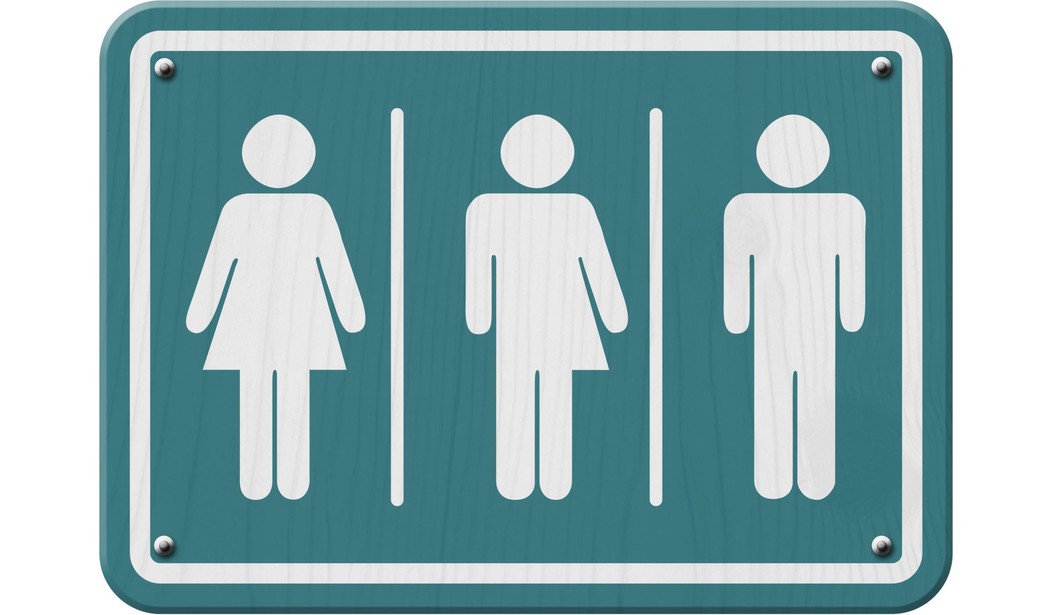On Wednesday night, North Carolina Democrat Governor Roy Cooper announced that he had come to an agreement with Republicans in the state’s House of Representatives and the state Senate to repeal the controversial H.B. 2, the notorious “Bathroom Bill.” According to LGBT activists, however, the new legislation these politicians agreed to support does not actually undo the bill’s “discriminatory” effects.
“The deal proposed would continue to actively discriminate against the LGBT community,” Chris Sgro, executive director of the LGBT group Equality NC, told The Charlotte Observer.
Chad Griffin, president of the LGBT group Human Rights Campaign (HRC), said “the rumored HB2 ‘deal’ does nothing more than double-down on discrimination and would ensure North Carolina remains the worst state in the nation for LGBTQ people.” Griffin added that “the consequences of this hateful law will only continue without full repeal of HB2. Sellouts cave under pressure. Leaders fight for what’s right.”
North Carolina’s previous governor, Pat McCrory, signed H.B. 2 into law in March of last year. The law struck down a Charlotte city ordinance barring discrimination against transgender people and reserved to public non-single stall bathrooms for members of the same biological sex. The bill allowed private establishments to determine their own bathroom policies, unlike the Charlotte ordinance.
LGBT activists denounced the bill as discriminatory, and sports associations like the ACC and the NCAA pulled championships from the state in protest. The Obama administration’s Department of Justice (DOJ) twisted the meaning of the terms “sex” and “gender” in order to claim H.B. 2 violated the 1964 Civil Rights Act by institutionalizing “discrimination on the basis of sex.”
In May, McCrory opened suit against the federal government, saying this action represented a huge overreach of federal power. H.B. 2 supporters argue that bills explicitly allowing transgender people to use the public restrooms reserved for the opposite sex would enable voyeurs — and this has arguably happened at Target stores across the country. Indeed, a “large, burly man” was seen lurking in a women’s restroom — at Disneyland, no less! These events have prolonged the legal and cultural battle over transgender issues.
In November of last year, Democrat Roy Cooper narrowly defeated McCrory’s re-election bid, promising to repeal H.B. 2. On Wednesday, two Republican leaders — House Speaker Tim Moore and Senate leader Phil Berger — announced that they had come to an agreement with Cooper on a bill to repeal the law.
The proposed repeal is very brief, and according to Berger and Moore, it will do three things: repeal H.B. 2, leave bathroom regulation to the state, and place a moratorium on ordinances like the original Charlotte ordinance which spurred H.B. 2 in the first place. Such local regulations would be barred until December 1, 2020.
Here's a copy of the bill that @NC_Governor, @NCHouseSpeaker, and I agreed to this evening. https://t.co/Y2sZsJsDbX#NCGA #NCPOL #HB2 pic.twitter.com/grAbtUpCoT
— Senator Phil Berger (@SenatorBerger) March 30, 2017
Berger and Moore argued that the moratorium would allow time for pending federal litigation over transgender issues to play out.
“I support the House Bill 2 repeal compromise that will be introduced tomorrow,” Governor Cooper said in a statement Wednesday evening. “It’s not a perfect deal, but it repeals House Bill 2 and begins to repair our reputation.”
Other repeal bills have been proposed. Democratic Senator Joel Ford of Charlotte introduced a bill last week that would call for a “cooling off” period after repealing H.B. 2. Republican Senator Jeff Tarte announced that he would introduce another repeal measure, which would increase penalties for crimes committed in bathrooms or locker rooms, and add sexual orientation to protected classes. His measure also includes a conscience clause for people with religious objections.
But anything besides a full repeal has drawn opposition from LGBT groups, who denounced the repeal bill before it had been released. “At its core, it’s a statewide prohibition on equality,” Griffin, the HRC president, told reporters Wednesday. “Just like we did with … McCrory, we will hold all elected officials accountable — Democrats and Republicans — who target our community by advancing this statewide ban on nondiscrimination protections.”
Make no mistake: This newest #HB2 proposal is a bad deal that does not actually #RepealHB2. Instead, it doubles-down on discrimination.
— Human Rights Campaign (@HRC) March 30, 2017
Unlike H.B. 2, the repeal bill does not specify that public, non-single stall restrooms should be reserved to members of the same sex as shown on birth certificates. This new measure only stipulates that such policy is a state issue. Nevertheless, LGBT groups seem hell bent on supporting Charlotte’s original ordinance.
The good news for North Carolina is that, despite loud boycotts from many companies, H.B. 2 has had a very minimal impact on the state’s booming economy. A recent study by the Associated Press estimated that the bill would cost the state $3.76 billion over the next twelve years, but this only amounts to 0.058 percent of the state’s estimated GDP over that time period.
Cooper was elected on the platform of repealing H.B. 2, so he may have to keep his promise. But if the bill remains in place, it won’t be the end of the world.









Join the conversation as a VIP Member